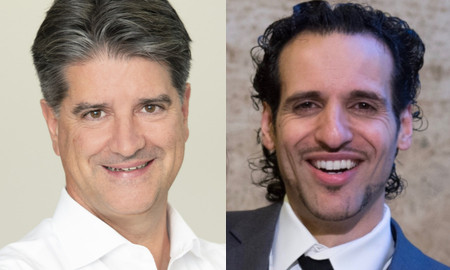Sign up for our free daily newsletter
YOUR PRIVACY - PLEASE READ CAREFULLY DATA PROTECTION STATEMENT
Below we explain how we will communicate with you. We set out how we use your data in our Privacy Policy.
Global City Media, and its associated brands will use the lawful basis of legitimate interests to use
the
contact details you have supplied to contact you regarding our publications, events, training,
reader
research, and other relevant information. We will always give you the option to opt out of our
marketing.
By clicking submit, you confirm that you understand and accept the Terms & Conditions and Privacy Policy
Many of the world’s largest law firms are failing to properly demonstrate their responsible business commitments to clients, according to a study by Lamp House Strategy.
The inaugural Lamp House Strategy Responsible Business Annual Report showed that less than a quarter of firms (22%) publish a holistic responsible business report, with firms falling short in a wide-range of areas including diversity and sustainability.
For example, only one in five firms have stated targets for increasing their percentage of women partners, while more than a third of firms (39%) do not show any effort towards supporting individuals with disabilities or those with neurodivergence.
When it comes to environmental, social and governance matters, nearly all firms (96%) fail to demonstrate how they review clients and new instructions from an ESG perspective, with only 32% of firms clearly applying ESG criteria to their supply chains. Meantime, only 26% of firms measure their Scope 1 and 2 carbon emissions and only slightly more than one in five (22%) have set a net zero target.
Lisa Hart Shepherd, CEO of Lamp House Strategy, said: “It is terrific to see all law firms doing something to demonstrate they are acting in a responsible way to their people, communities and the planet. Yet it is disappointing to see a general lack of transparency and commitment by way of measures, targets and reporting. Clients and talent want firms to step up in this area, and firms are simply not doing enough.”
The report assesses law firms on 238 different responsible business activities related to planet, people and governance. On average, firms have adopted just 38 different activities.
The best performing firm was Burges Salmon, which Lamp House says demonstrated “a sophisticated and transparent approach across all three streams of people, planet and governance”. Other firms in the top 5% included Addleshaw Goddard, Baker McKenzie, DWF, Freshfields Bruckhaus Deringer, Linklaters and Slaughter and May.
Chris Seaton, senior partner at Burges Salmon, commented: “Authenticity in this area is key for our people and it is hugely important that it is not seen as a tick box exercise. This requires the strategy to be led and lived by those at the very top of the firm. Undoubtedly our performance as a responsible business is an important driver for why people want to stay at our firm and for the talent we recruit.”
US-based firms lagged their UK peers on communicating governance measures and their commitment to the planet. On average, Canadian firms are the least transparent about what they are doing in these areas.
Hart Shepherd added: “This is a lost opportunity. Failing to tell your responsible business story equates to a significant lost return on investment. Most people understand that this is a journey and that not everything will be perfect straight away. People just want to know that firms are taking their duty of care seriously and talking openly about efforts and progress is the best way to do that.”
The report was based on a review of all published information by 125 leading law firms, with the research conducted in July and August.
Email your news and story ideas to: [email protected]











